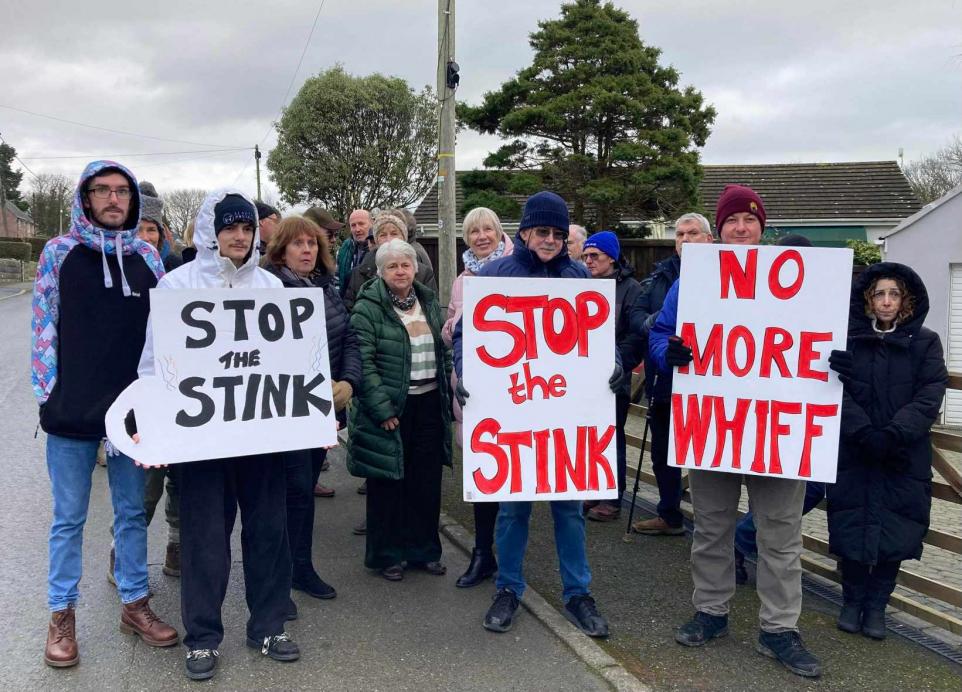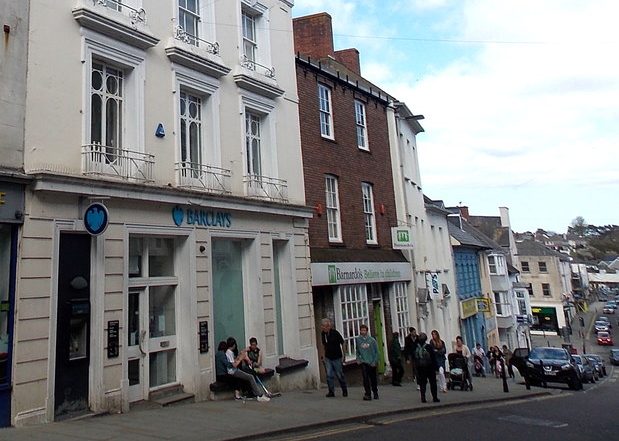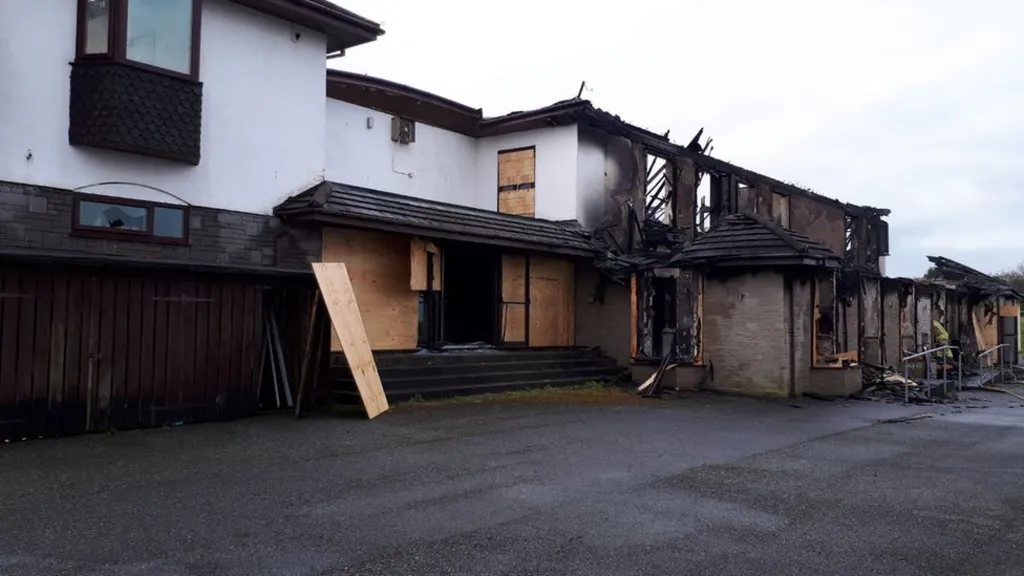Politics
WG consults on new planning process

THE WELSH GOVERNMENT has published proposals to change the way major infrastructure projects are consented.
A new approach is needed because more consenting powers are due to be devolved on April 1, 2019. The Welsh Government is also taking the opportunity to combine a number of existing processes into a single streamlined “one-stop shop” consenting process.
Two stages are being proposed:
- An interim solution requiring changes to existing processes; and
- A long-term solution requiring primary legislation to establish an entirely new form of consent.
The proposals only apply to areas where consenting is devolved.
So for example, in future, projects like the proposed M4 relief road around Newport and the 200 Megawatt (MW) Swansea Bay tidal lagoon would need to be consented through the new process, whereas the 2,700MW Wylfa Newydd nuclear power station would not, because consenting for generating stations with a capacity of over 350MW would remain with the UK Government.
CURRENT SITUATION
Wales currently has three tiers of consenting processes for most infrastructure projects (there are some exceptions):
Smaller projects are decided by local planning authorities;
Larger projects, where consenting is devolved, are decided by the Welsh Government through the Developments of National Significance (DNS) process; and
Larger projects, where consenting is not devolved, are decided by the UK Government through the Nationally Significant Infrastructure Projects (NSIP) process.
Consents by local planning authorities and the Welsh Government are given under the Town and Country Planning Act 1990 (TCPA) – this is often known as planning permission.
NSIPs require a different kind of consent called a Development Consent Order (DCO), which is given under the Planning Act 2008. DCOs can include consents on a range of associated matters – these are often called secondary consents.
NEW POWERS
The Wales Act 2017 devolves further consenting powers which are due to come into force on 1 April 2019:
Energy generating stations with a capacity of up to and including 350MW onshore and in Welsh waters (which is an inshore area out to approximately 12 nautical miles from Welsh shores). This doesn’t include onshore wind which is already devolved with no upper limit; and
Overhead electric lines of up to and including 132 Kilovolts (KV) that are associated with a devolved energy generating project.
In addition, the Wales Act has already devolved consenting for Harbour Revision and Empowerment Orders, which are made under the Harbours Act 1964, for most Welsh ports. These new powers came into force on April 1.
WHY A NEW PROCESS IS NEEDED
The way in which the Wales Act devolves the new powers creates some anomalies which need to be resolved to ensure an efficient and effective approach to consenting.
The consenting powers for energy generating stations and overhead electric lines mentioned above are currently consented by the UK Government through the DCO process.
In devolving these powers, the Wales Act takes consenting for these projects out of the DCO process and places consenting for devolved generating stations in Welsh waters back into the former Electricity Act 1989 process. On land, the consenting of devolved generating stations and associated overhead electric lines is placed into the TCPA process, instead of the Electricity Act. The TCPA has previously not been used to consent this scale of generation project.
For a number of reasons set out in the consultation document, this is seen as a backward step.
In addition, the Welsh Government favours taking a more integrated and streamlined approach to infrastructure consenting. It wants to establish a one- stop shop approach for major devolved projects, similar to the UK Government’s DCO process. This, it argues, would provide more consistent and transparent decision-making, and more certainty for communities and developers alike.
The alternative would be to continue with a number of different processes each with their own requirements, established under separate legislation (including the TCPA, Electricity Act and Harbours Act mentioned above).
The one-stop shop approach also allows a number of secondary consents to be included in the main consent, rather than having to be applied for separately.
Some associated changes to the compulsory purchase process are also proposed.
INTERIM SOLUTION
The Welsh Government says an interim solution is necessary because there isn’t enough time to set up an entirely new process before April 1, 2019.
The interim solution involves amending secondary legislation to include the newly devolved onshore energy generating stations and electric lines within the existing DNS process.
Offshore energy generating stations will be consented under the Electricity Act, with a new fee structure based on full cost recovery. Harbour Revision and Empowerment Orders will continue to be made under the Harbours Act.
Offshore energy generating stations and Harbour Revision and Empowerment Orders can’t be brought into the DNS process because the TCPA, under which the DNS process was established, only extends to the low water mark.
The interim solution is due to come into force on April 1, 2019 and will remain in place until the new process is established. The consultation document suggests this will be after 2020.
LONG-TERM SOLUTION
The long-term solution is to establish a new one-stop shop consenting process that is bespoke to Wales.
The consent would be called Welsh Infrastructure Consent (WIC) and projects captured by it would be called Welsh Infrastructure Projects (WIPs). The Assembly would need to pass primary legislation to establish the new process.
The WIC would consolidate existing consents under the TCPA, Electricity Act, Harbours Act, and a number of other consents made under highways legislation, into one single type of consent. The WIC would also include a wide range of secondary consents, including Compulsory Purchase Orders, Marine Licences and Environmental Permits.
The consenting process would be accompanied by thresholds and policies against which the individual projects can be assessed. Key policies would include Planning Policy Wales, the National Development Framework and the Wales National Marine Plan. The fee structure would be based on full cost recovery.
The WIC process would be designed to be flexible to capture projects of varying types and sizes. It would take a “proportional approach”, enabling certain types of decisions to be made more quickly, and others, which are more complex, to receive greater scrutiny.
This includes introducing a category of optional WIPs that the developer could choose to submit either via the WIC process or to the local planning authority. In the case of offshore projects, where there is no local planning authority, the alternative route for optional WIPs would be via the marine licencing process.
The WIC process would also require developers to engage with local communities before submitting their applications and provide greater opportunity for the public to participate during the examination process. There would also be a specific role for local planning authorities in documenting impact in their areas.
However, the consultation does not address the transfer of regional infrastructure projects away from elected councils and into the hands of unelected so-called ‘City Deal’ boards or their rural counterpart in Mid Wales. The complication of creating a national structure without accounting for looming changes in the delivery of infrastructure services is – as it stands – both unresolved and a likely source of future confusion.
News
Withyhedge Landfill faces political allegations and regulatory enforcement

STEPHEN CRABB MP has vociferously criticised the Welsh Labour Government for its management of the Withyhedge Landfill in Pembrokeshire, claiming it has turned the area into a “dumping ground” for waste from across Wales. Mr. Crabb, supported by Paul Davies MS, alleges that substantial lorries deliver waste daily to the site, causing significant distress to local residents. The MP has repeatedly written to the First Minister, demanding immediate intervention, yet claims to have received no response.
Compounding the controversy, Mr. Crabb highlighted a substantial £200,000 donation to Vaughan Gething’s recent election campaign from the landfill’s owner, questioning the impartiality of regulatory practices. Despite ongoing political efforts, Mr. Crabb asserts that resolution lies solely with the Welsh Government, which has the ultimate authority to address these grievances.
Meanwhile, Natural Resources Wales (NRW) has escalated its enforcement actions against the site’s operators, Resources Management UK Ltd (RML), amid persistent community complaints about odour and gas emissions. A recent Regulation 36 Enforcement Notice demands a series of remedial actions by RML, with deadlines stretching into May 2024. These measures focus on improving the site’s gas management infrastructure and capping exposed areas to mitigate odour issues.
Huwel Manley, Head of South West Operations at NRW, expressed understanding of the community’s frustration, emphasizing the urgency of the required actions. “We are committed to ensuring RML Ltd. deliver these actions rapidly and effectively. Continued non-compliance will lead to further measures, potentially including a suspension of the environmental permit,” stated Mr. Manley.
Pembrokeshire County Council, represented by Chief Executive Will Bramble, also voiced disappointment over the ongoing issues, affirming full support for NRW’s stringent enforcement steps. The Council and NRW are working closely to monitor the situation and have encouraged the public to report any odour incidents promptly to aid in effective resolution.
As the deadline approaches, all parties involved are under increasing pressure to demonstrate tangible improvements and ensure the health and well-being of Pembrokeshire residents are prioritised.
Politics
Barclays closure in Haverfordwest sparks calls for banking changes

A CALL for Pembrokeshire County Council to potentially change its banking arrangement with Barclays, after the bank announced it was closing its county town branch, is expected to be turned down next week.
Barclays Bank in Haverfordwest, located on the town’s High Street, is to close on May 10.
The council has had a banking services contract with Barclays since 2013, with the most recent contract – for four years – signed last May following an independent review.
Councillor Huw Murphy, in a notice of motion to be heard by Pembrokeshire County Council’s Cabinet meeting of April 22, is asking the council to review its banking arrangements with Barclays following the announced closure.
“The loss of many banking facilities within Pembrokeshire over recent years has had a detrimental impact on many town centres such as Tenby, St Davids, Fishguard, Milford Haven, Narberth, Newport and Pembroke and Pembroke Dock and will soon impact Haverfordwest with the loss of Barclays bank to the town.”
He said the loss of a branch “not only impacts upon town centres and businesses but also disproportionately impacts the elderly who are less likely to embrace on-line banking options”.
After the Haverfordwest closure was announced, a spokesperson for the bank said that the Haverfordwest branch only had 32 regular customers who used the branch exclusively for their banking and do not interact with Barclays in any other way.
A report for cabinet members says, in terms of the impact on Pembrokeshire residents, Barclays has said that it is “not leaving Haverfordwest and [will] continue to provide face-to-face support for those who need it” via community locations.
It adds: “Everything else can be done via alternative channels such as everyday transactions via the Post Office. We will be making personal contact with our regular and vulnerable branch users to discuss their options and guide them through alternative ways to bank.”
Two options were presented to cabinet following Mr Murphy’s motion, to retender the banking services contract, and, the favoured, to work with Barclays to ensure a community location is set up in Haverfordwest.
The report says the costs associated with moving to a new service provider “can be excessive and in some cases greater than the cost of the annual contract value,” adding: “Whilst the costs can vary between local authorities it can be in excess of £50,000.”
For the second, favoured option, the report says: “An integral part of the branch closure communication, Barclays advised that they will be setting up a community location in Haverfordwest.
“Whilst this is a change to how Barclays currently operate in Haverfordwest, this concept mirrors the successful implementation of a hub located within The Giltar Hotel in Tenby that operates twice a week.”
It adds: “Discussions have commenced with Barclays to see what the council can offer in terms of locations.”
Cabinet members are recommended to back the second option.
Community
Burned down hotel to be used for social housing

A SCHEME to build 38 affordable and social housing units on the site of the fire-ravaged former Cleddau Bridge Hotel, Pembroke Dock is expected to be backed by senior Pembrokeshire councillors next week.
Members of Pembrokeshire County Council’s Cabinet, meeting on April 22, are recommended to support a contract with developer Castell Group Ltd for the mix of affordable homes and social housing units at the site, with the actual contract details expected to be discussed in a private and confidential session.
A report for members ahead of the meeting says: “The potential development site on the former Cleddau Bridge Hotel site, Pembroke Dock has been up for sale for some time, and its purchase by Castell Group Ltd (‘Castell’) is now imminent.
“Following completion of their purchase, Castell will submit an application for planning consent to develop the land for affordable and social housing. It would see the development of a high-profile site with visual impact on surrounding areas that has sat dormant for many years.”
Castell has approached the housing service to determine whether there is an interest in working with them to bring forward the development as a housing site, the report says.
Castell Construction Ltd, the delivery arm of Castell, specialises in the construction of affordable / social housing, typically for registered social landlords across south Wales.
An initial proposal says the development, if backed, would see 12 one-bedroom flats, 15 two-bed houses, five three-bed, two four-bed, and four two-bed bungalows, the report adding: “This site would help towards both the council’s 300 new home target and also Welsh Government’s 20,000 new homes target.”
It adds: “The proposal by Castell Construction Ltd is for a development programme of 18 months following planning permission being secured. Castell Construction Ltd estimate commencing the development in March 2025, which would mean completion in autumn 2026.”
Delegation of the decision to enter into the works contract to the Director for Social Services and Housing is sought, and Cabinet is also being asked to delegate the decision to proceed with the land acquisition to the Assistant Chief Executive.
The development package would be part-funded from the housing revenue account, the remainder from the Social Housing Grant and/or second homes premium for affordable housing if it becomes available for the Housing Service to use in this manner.
The proposals would be subjected to an as-yet unsubmitted planning application; if granted Castell Construction Ltd hopes to start the development in March 2025, finishing in autumn 2026.
In 2023, an unrelated application by a different applicant, to demolish the remnants of the hotel and replace it with a care home was approved.
In a prime location at one of the entrances to Pembroke Dock the former Cleddau Bridge Hotel has been derelict since a fire in March 2019, which brought emergency services from as far afield as Ammanford, Aberystwyth and Swansea.
Mid and West Wales Fire and Rescue Service previously said the fire was started by a deliberate act.
Following a fire investigation, Dyfed-Powys Police said they found there to be insufficient evidence to identify a suspect.
-

 Business4 days ago
Business4 days agoBluestone National Park Resort payments expected to end
-

 Community6 days ago
Community6 days agoThe Harbourmaster: Special rail excursion draws crowds to Milford Haven
-

 News5 days ago
News5 days agoDragon LNG ‘monitoring’ scrap car blaze in Waterston
-

 News5 days ago
News5 days agoSearch for Luke, 19, reported missing in the Pembroke Dock area, continuing
-

 News2 days ago
News2 days agoSearch for missing teenager Luke continues at Pembroke Dock
-

 Crime4 days ago
Crime4 days agoEstate agents admit health and safety failings following fatal market incident
-

 News7 days ago
News7 days agoMajor search in the area of The Cleddau Bridge and Hobbs Point
-

 News3 days ago
News3 days agoMan jailed after scarring police officer in Narberth altercation





































